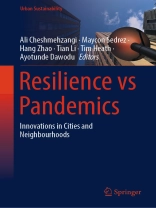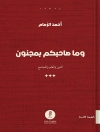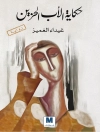The COVID-19 pandemic and other highly transmissible diseases outbreaks have given a new significance to the concept of “resilience”, placing it in the spotlight of built environment-related studies. New directions have emerged from expanding on adaptive planning, urban layouts, urban morphologies, spatial planning, healthy cities, etc. To enhance resilience in the post-pandemic era, various theories, practices, and hypotheses are being formulated by scholars around the world.
For this book project, we invite chapter proposals that provide forefront discoveries about the built environment resilience during and after the ongoing pandemic. Historical perspectives of resilience and other highly transmissible diseases are also relevant to understanding the COVID-19 issues. The authors are encouraged to elaborate on critical exploratory, innovative, and cutting-edge research approaches, highlighting the effects of COVID-19 and other highly transmissible diseases in the design, planning, and perception of the built environment. We aim to gather scientific experiences, reviews, analyses, discussions, recommendations, and solutions in the fields of urban planning, urban design, urban management, environmental science, architecture, etc.
The book aims to document resilience-related innovations and new perspectives for the built environment, how people’s interactions adapt to new realities, and which mechanisms, tools, and strategies are required for such transformations in the following two scales of the built environments:
(1) City/district; research on planning, commuting and mobility, politics, urban configurations, regulations, transmission and prevention, models, top-down processes, innovation processes, etc.
(2) Community/neighborhood; research on collaboration, transmission and prevention, isolation and quarantine, social aspects, accessibility to services, technologies, education, policies, and innovative solutions.
The book covers a wide range of studies, including physical and non-physical studies, which may refer to the city infrastructure, green/blue spaces, housing, policy-making, health services, social and economic issues, etc. The findings and results contribute to the decision-making of governments, organizations, and institutions, as well as inspire scholars and future research for developing resilience in the post-pandemic era.
Jadual kandungan
Urban Resilience to Future Pandemics.- Innovations in Cities.- Exploring the determinants of Urban Resilience against Pandemics: Case of four large Indian cities.- The healthy city: how sustainable mobility policies gave a resilient response to the COVID-19 crisis through tactical urbanism.- Looking with Machine Eyes: City Monitoring for Urban Resilience.- Tackling the pandemic at the metropolitan level. Looking for the right scale to plan more resilient territorial development futures.- Enhancing Healthy Cities through Urban Planning and Human Resilience.- Innovations in Neighbourhoods.- Urban Resilience by Morphology? Reflections on lockdown urbanism in China.- Impacts of the ‘3-layered Quarantine Zone’ on Compartmented Urban Spaces.- Problem and Issues in Building City Resilience to Pandemic in Sri Lanka.- The impact of post-pandemic lifestyle on neighbourhood: Changes from 2020 to 2022 in Wuhan, China.- Towards Resilient Cities and Neighbourhoods to Pandemics.
Mengenai Pengarang
Prof. Ali Cheshmehzangi is the World’s top 2% field leader, recognised by Stanford University. He has recently taken a senior leadership and management role at Qingdao City University (QCU), where he is a Professor in Architecture and Urban Planning, Director of the Center for Innovation in Teaching, Learning, and Research, and Advisor to the school’s international communications. Over 11 years at his previous institute, Ali was a Full Professor in Architecture and Urban Design, Head of the Department of Architecture and Built Environment, Founding Director of the Urban Innovation Lab, Director of Center for Sustainable Energy Technologies, and Director of Digital Design Lab. He was Visiting Professor and now Research Associate of the Network for Education and Research on Peace and Sustainability (NERPS) at Hiroshima University, Japan. Ali is globally known for his research on ‘urban sustainability’. So far, Ali has published over 400 journal papers, articles, conference papers, book chapters, and reports. To date, he has 19 other published books.Maycon Sedrez is a Brazilian architect and urban designer, an artist, and an educator with a background in computational design and digital fabrication. His research areas include complexity and architecture, parametric design, digital fabrication, technologies, and urbanism. He obtained his Ph.D. Diploma with excellence in Architecture, Technology and City from the University of Campinas in 2016. He contributed to the Institute for Sustainable Urbanism (TU Braunschweig—Germany) as a postdoc in the field of urban analytics. Later in 2019, he became part of the University of Nottingham Ningbo China’s team, leading the Digital Design Lab, and acting as a course director and the deputy head of department. He is now a lecturer in Architecture at Deakin University in Australia (2023).
Hang Zhao is a researcher in the fields of urban planning, design, and management. She obtained Master of Urban Design at the University of Melbourne in 2021. Her professional skills cover city and regional planning, transportation design, landscape and architectural design, etc. Now she is researching resilient cities and built environment at the University of Nottingham Ningbo China.
Tian Li is a researcher who studies resilience-oriented urban planning and management. She has a background in urban and rural planning, urban design, and regional analysis and planning. She completed her Master’s degree with Distinction in MArch Sustainable Urban Design at the University of Nottingham, UK. Currently, she is researching at the University of Nottingham Ningbo China, and her research mainly focuses on pandemic-resilient urban strategies and urban public spaces.Tim Heath is a qualified architect, town planner, and urban design practitioner having worked in the UK for over 30 years and for the past 15 years in China where he has undertaken consultancy and projects related to architecture, urban design, and building and urban environmental performance assessments. He is the course director of the MArch Sustainable Urban Design and the director of Postgraduate Programs. He has previously been the director of the Institute of Architecture, the head of the School of the Built Environment, and subsequently the head of the Department of Architecture & Built Environment. He has also been the associate dean for Internationalisation and External Relations in the Faculty of Engineering and an acting vice provost for Research & Knowledge Exchange at the University of Nottingham Ningbo China (UNNC He is also a member of the Human Factors Research Group.
Ayotunde Dawodu is a sustainable urban researcher and an energy engineer with a zeal for developing and implementing sustainable solutions across the urban fields; waste management, transport, energy (efficient and renewable), spatial planning, ecology sectors; equipped with a B.Sc. in Mechanical Engineering, M.Sc. in Sustainable Energy Engineering, and Ph.D. in Energy Technologies and Sustainable Development. He also possesses expertise in sustainable building design/analysis and strongly advocate integrated community participation in urban decision-making and planning. She also specializes in sustainability assessment tool methods for evaluating guiding, ranking, and assessing the sustainability of buildings and communities. He is currently a senior lecturer in the Built Environment at the University of Greenwich, UK. He is also a certified BREEAM assessor, a WELL accredited professional (AP), and a member of the WELL Concept “Communities” Advisory group for International WELL Building Institute (IWBI), further attesting to his professional capabilities as a sustainability and health and well-being expert in the built environment.












